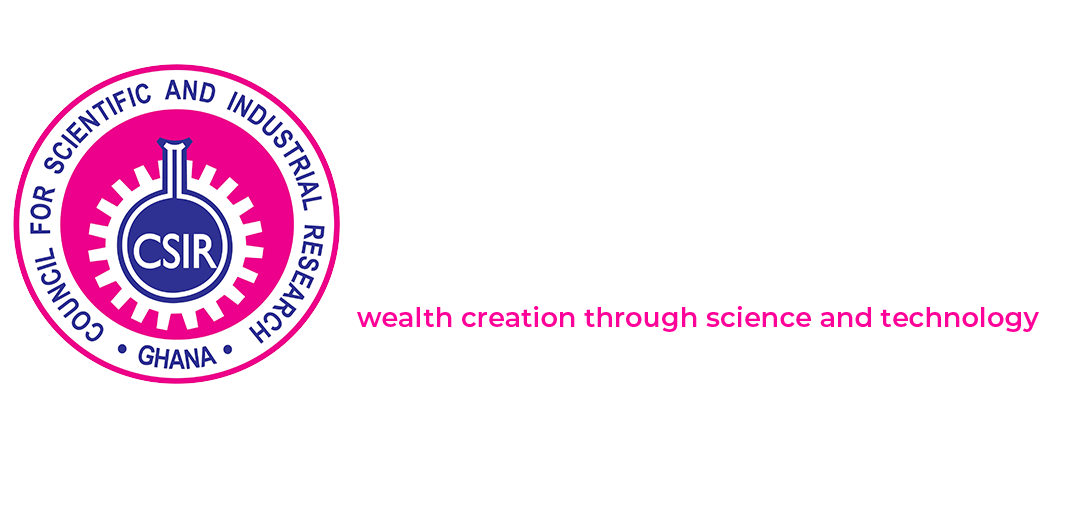
Head Office
Airport Residential Area, Accra - Ghana
Contact Info
☎: +233-302-777651-4

CELEBRATING WORLD CREATIVITY AND INNOVATION DAY ‘23
Valorization of Agro Residue into Particleboard
Particleboard is an engineered product produced from lignocellulosic materials and adhesive which is then bonded together under heat or pressure. The demand for particleboard products has increased substantially throughout the world, representing 57% of the total consumption of wood-based panels, a percentage that is continuously growing at a rate of 2 - 5% annually.
Wood has been the primary raw material used, and the bond necessary to hold them together is produced by a formaldehyde-based adhesive. The overdependence on natural forests for this raw material has led to the gradual depletion of large diameter trees, which in turn cause price increments. Additionally, the emission of carcinogenic formaldehyde in the production and use of particleboards has generated a lot of discussions by researchers, some advocating for its substitution.
The CSIR Forestry Research Institute of Ghana (FORIG) produced particleboards using agro- and forest residue such as Musa paradisiacal pseudostem, Theobroma cacao pod and stem, Elephant grass, coconut husk, forest thinning’s, plantation pruning residues, etc. The addition of value to agro-residue is to reduce pollution, find alternative raw material sources and to help mitigate the effects of climate change. Some of the particle boards were prepared with or without adhesives.
To reduce emissions, we also produced particleboards with biodegradable adhesives.
This project will:
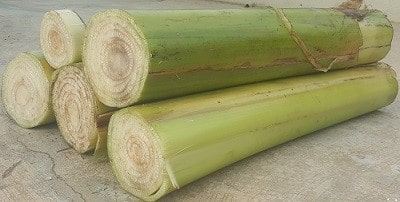 Plantain stem Plantain stem |
|
|
|
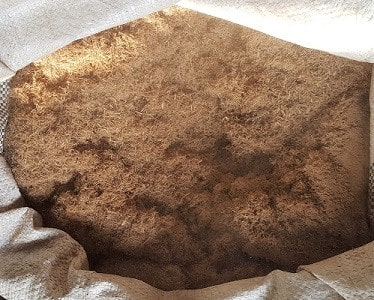 Plantain particles Plantain particles |
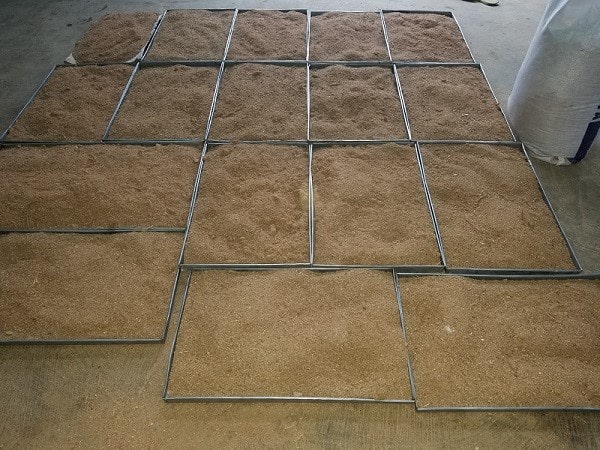 Cocoa stem particle Cocoa stem particle |
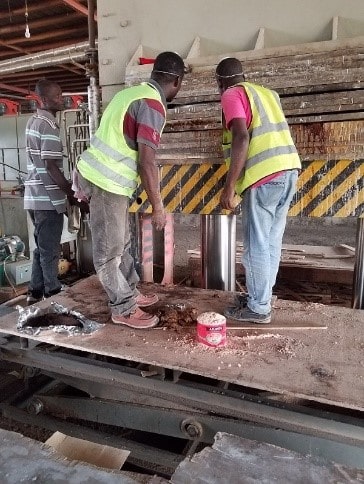 Pressing of the particleboards Pressing of the particleboards |
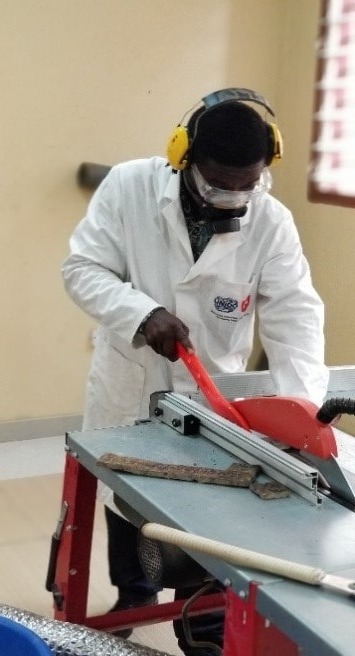 Preparation of test samples Preparation of test samples |
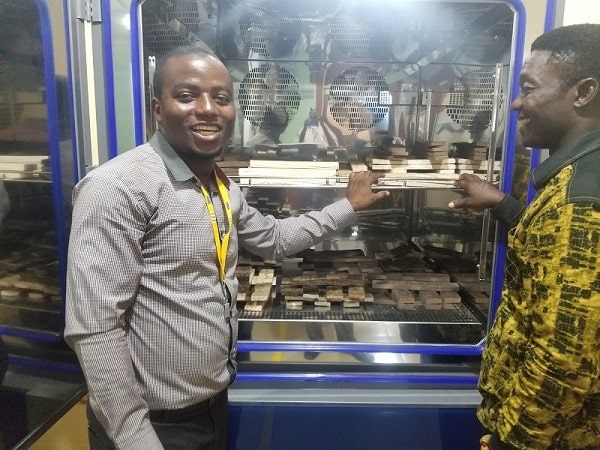 Conditioning samples before test Conditioning samples before test |
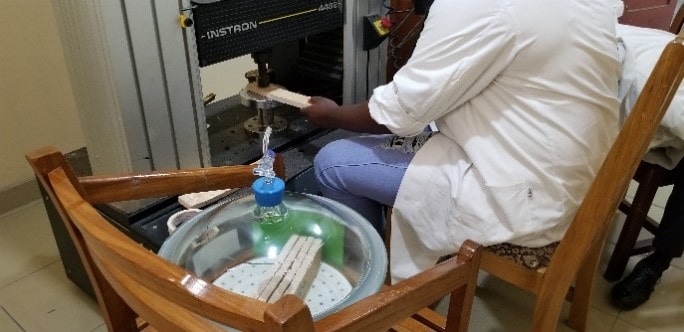 Dimensional stability test of the manufactured particleboard Dimensional stability test of the manufactured particleboard |
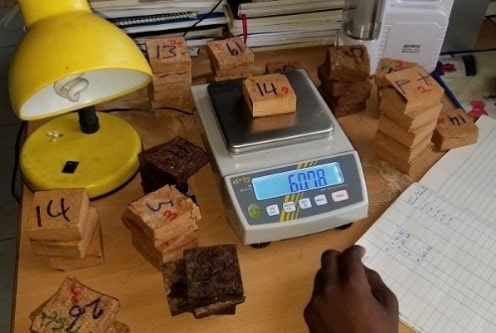 Hardness test of the manufactured particleboard Hardness test of the manufactured particleboard |
World Creativity and Innovation Day is celebrated worldwide each year on April 21 with the aim of inspiring people to tap into their creative abilities. The theme for this year’s celebration; “Step Out and Innovate” seeks to raise awareness about the significance of creativity and innovation in various aspects of human development and as a vital tool for maximizing a country's economic potential. CSIR embraced the theme and stepped out with its innovative approach to science and technology in Ghana.
Source: CSIR-Forestry Research Institute of Ghana (FORIG)
About CSIR-FORIG:
Forestry Research Institute of Ghana is one of the 13 institutes of the Council for Scientific and Industrial Research (CSIR). It is located at Fumesua near Kumasi in the Ashanti Region of Ghana.
To read more about CSIR-FORIG, visit www.csir-forig.org.gh

☎: +233-302-777651-4